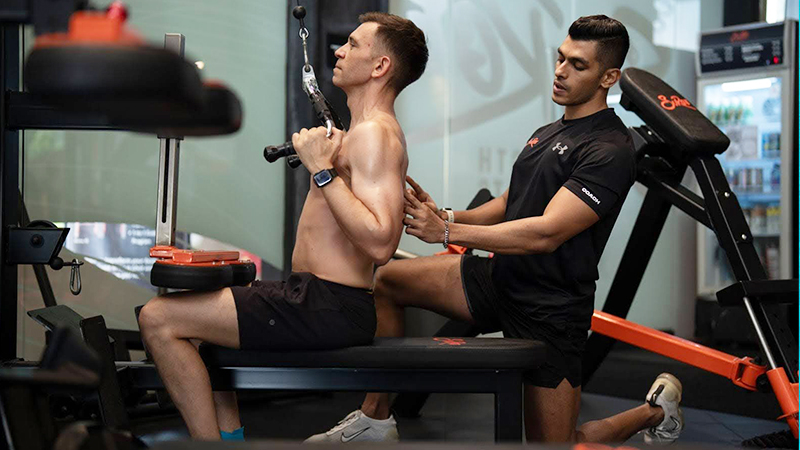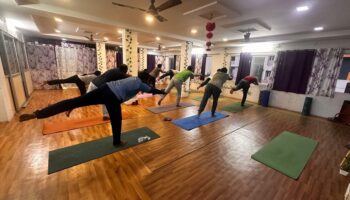Singapore’s fitness community has evolved rapidly, with more people embracing structured training as a lifestyle priority rather than a passing trend. Yet one critical truth remains: no amount of exercise can compensate for poor nutrition. To achieve lasting fitness results, diet and movement must work together. A gym membership Singapore provides the foundation for physical transformation, but it’s the synergy between what you eat and how you train that truly shapes health, performance, and longevity—especially in Singapore’s humid tropical climate.
The unique weather, fast-paced work culture, and diverse food landscape in Singapore create both opportunities and challenges for fitness enthusiasts. Balancing the convenience of local cuisine with the demands of effective training requires awareness, planning, and consistency.
The Science Behind Nutrition and Exercise
Nutrition and exercise share a symbiotic relationship. While exercise breaks down muscle fibres and burns energy, nutrition restores, rebuilds, and strengthens the body. Understanding this cycle allows gym-goers to tailor their diets for better recovery and sustained performance.
When you train at the gym, your body experiences three key phases:
-
Energy depletion: During workouts, stored carbohydrates (glycogen) are consumed as fuel.
-
Muscle breakdown: Resistance training causes microtears that must be repaired through protein intake.
-
Recovery and adaptation: Nutrients consumed post-workout rebuild muscle tissue and improve endurance.
A balanced diet rich in whole foods ensures these phases work in harmony. The key is timing and composition—knowing what to eat before, during, and after training to maximise results.
How Singapore’s Climate Affects Nutrition Needs
Singapore’s year-round humidity and heat significantly affect hydration, energy levels, and nutrient absorption. Intense sweating leads to electrolyte loss, while the warm climate increases fatigue faster than in cooler environments.
To perform optimally, gym members should prioritise:
-
Hydration: Drink water consistently throughout the day, not just during workouts.
-
Electrolyte balance: Replenish sodium, potassium, and magnesium lost through sweat.
-
Cooling foods: Include hydrating options like cucumber, watermelon, and citrus fruits.
-
Digestible meals: Avoid heavy, oily foods before workouts to prevent sluggishness.
These adjustments are vital for sustaining endurance and preventing dehydration-related fatigue, which is common among those training in Singapore’s tropical conditions.
Building a Sustainable Fitness Diet in Singapore
A sustainable fitness diet doesn’t mean giving up the joy of eating. Singapore’s multicultural food scene offers an abundance of nutritious options once you learn to make smart choices.
Practical tips for building a sustainable eating plan include:
-
Balance macronutrients: Ensure every meal includes protein, complex carbs, and healthy fats.
-
Control portion sizes: Overeating, even on healthy foods, can hinder progress.
-
Choose grilled over fried: Opt for grilled fish or chicken instead of deep-fried alternatives.
-
Go easy on sauces: Many local dishes are high in sodium and sugar; ask for less gravy or sauce.
-
Snack smart: Replace processed snacks with nuts, fruit, or yoghurt.
These small, consistent adjustments make fitness goals achievable without sacrificing flavour or convenience.
Pre-Workout Nutrition: Fuel for Performance
What you eat before training directly influences energy levels, focus, and stamina. A good pre-workout meal should be light, easily digestible, and packed with energy-sustaining carbohydrates.
Ideal pre-workout foods include:
-
Oatmeal with fruit or honey
-
Wholegrain toast with peanut butter
-
Brown rice with steamed chicken or tofu
-
A banana with a handful of almonds
Aim to eat at least 60–90 minutes before your workout. This allows digestion to complete and ensures a steady energy release during training.
Post-Workout Nutrition: Recovery and Growth
Post-workout meals are equally crucial. The goal is to repair muscle tissue, restore glycogen, and reduce inflammation. The optimal time for recovery nutrition is within 30–60 minutes after exercise.
Recommended post-workout foods include:
-
Lean proteins like chicken, fish, eggs, or plant-based options
-
Complex carbs such as sweet potatoes, quinoa, or brown rice
-
Hydration drinks with electrolytes or coconut water
-
Smoothies made with fruit, protein powder, and yoghurt
This combination helps the body recover efficiently and supports muscle definition over time.
Local Food Choices That Support Fitness
One advantage of training in Singapore is access to fresh ingredients and diverse cuisines. Fitness enthusiasts can still enjoy local favourites by making mindful adjustments:
-
Hainanese chicken rice: Choose steamed chicken, less rice, and minimal soy sauce.
-
Yong tau foo: Load up on vegetables and tofu, skip the fried items, and choose clear soup.
-
Economic rice (mixed rice): Opt for two vegetables and one protein dish with brown rice.
-
Laksa or curry: Have smaller portions and balance with a protein-rich side later in the day.
Smart eating doesn’t mean eliminating local food—it’s about creating balance and awareness in daily choices.
The Role of Protein in Strength Training
Protein is essential for muscle recovery and growth. However, many gym-goers underestimate their daily requirement. On average, active adults need around 1.4–2 grams of protein per kilogram of body weight.
Good protein sources include:
-
Lean meats such as chicken breast, turkey, and fish
-
Eggs and dairy products like Greek yoghurt
-
Legumes, lentils, and quinoa for plant-based diets
-
Protein shakes or bars when convenience is needed
Distributing protein intake evenly throughout the day helps maintain a steady recovery process.
How Gym Memberships Encourage Nutritional Discipline
A structured gym membership offers more than physical facilities—it provides accountability. Being part of a consistent fitness environment motivates members to adopt healthier habits across all areas of life, including diet.
Regular workouts reinforce mindfulness about food intake. People who train consistently tend to eat with purpose, understanding that every meal contributes to or detracts from their progress. Many gyms also collaborate with nutrition coaches to educate members on proper dietary planning.
This integration of training and nutrition support makes gym memberships a foundation for sustainable wellness.
Supplements: When and How to Use Them
Supplements can enhance nutrition but should never replace whole foods. Commonly used supplements among fitness enthusiasts in Singapore include:
-
Protein powder: Ideal for post-workout recovery.
-
BCAAs (Branched-Chain Amino Acids): Help reduce muscle soreness.
-
Creatine: Improves strength and endurance in resistance training.
-
Multivitamins: Support nutrient balance when diet variety is limited.
Choosing reputable brands and consulting a nutritionist ensures safe and effective supplementation.
The Importance of Rest and Recovery
No fitness journey is complete without proper recovery. Nutrition and exercise must be complemented by adequate rest to allow the body to adapt and grow stronger.
Lack of sleep disrupts hormone balance, impairs recovery, and increases cravings for unhealthy foods. Singapore’s high-paced work culture often causes sleep deprivation, making it essential for gym-goers to prioritise at least seven hours of rest per night.
Proper recovery ensures long-term sustainability in both diet and exercise routines.
How True Fitness Singapore Supports Holistic Wellness
Fitness providers like True Fitness Singapore recognise that optimal performance requires a balance of training, nutrition, and rest. Through expert guidance, structured programs, and access to experienced trainers, members receive a complete framework for achieving their fitness goals.
By combining science-backed exercise routines with nutritional education, True Fitness empowers individuals to maintain results sustainably, regardless of their fitness level.
Creating a Balanced Fitness Lifestyle
Sustainability is the key to success. Extreme diets and short-term fitness challenges may deliver temporary results but rarely lead to long-term well-being. The goal is to cultivate habits that align with daily life—consistent training, balanced eating, and adequate rest.
In Singapore’s food-rich culture, this balance allows individuals to enjoy variety while remaining health-conscious. Fitness should complement lifestyle, not complicate it.
FAQs
Q1: How important is nutrition compared to exercise?
Both are equally vital. Exercise builds strength and endurance, while nutrition provides the fuel and materials needed for repair and growth.
Q2: How can I stay consistent with healthy eating in Singapore’s food culture?
Plan meals ahead, choose balanced options at hawker centres, and avoid overindulgence. Focus on moderation rather than restriction.
Q3: What are the best snacks for pre-gym energy?
Bananas, nuts, yoghurt, or small portions of wholegrain toast provide quick energy without heaviness.
Q4: Is it okay to eat local favourites while training?
Yes, as long as portions and ingredients are controlled. Fitness is about balance, not deprivation.
Q5: How much water should I drink daily in Singapore’s humid weather?
At least 2.5 to 3 litres per day, with additional intake during and after workouts.
Q6: Can supplements replace a balanced diet?
No. Supplements fill small nutritional gaps but cannot substitute whole foods rich in fibre, vitamins, and minerals.
Q7: What’s the best post-workout meal for recovery?
A combination of lean protein and complex carbohydrates—such as grilled chicken with brown rice or a smoothie with fruit and protein powder—is ideal.





